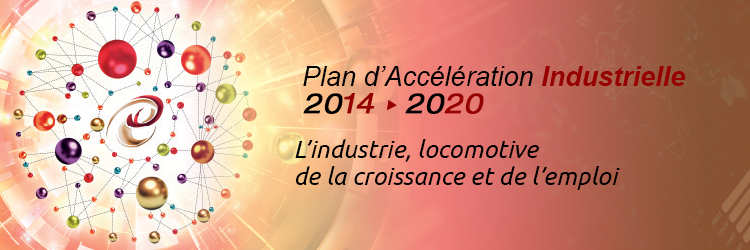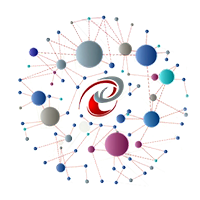
Achievements and realisations to be consolidated Strategic development choices adopted by Morocco have placed it on the path of openness and progress. This process was intensified by the introduction of targeted sectoral strategies. Positioned in this way, the Moroccan industrial sector has engaged in growth dynamics that has strongly consolidated since the implementation of the Emergence Plan and the conclusion in 2009 of the National Pact for Industrial Emergence. To date, tangible achievements can be noted, in particular: the creation of 110,000 industrial jobs between 2008 and 2011; an increase of 22% in the sector's exports; a clear development of the infrastructure and establishment of global industry leaders, thus increasing foreign direct investment (IDE) up by annual average rate of 23% since 2009. This performance has led to a better position for Morocco on the world's radars as a reliable and competitive industrial destination. It is now necessary to consolidate the foundations of the industrial structure in place, for an optimum exploitation of the industrial potential of the country, which is favourably located at the crossroads of Europe, Africa, the Middle East and America. This requirement for consolidation relies on three fundamental achievements, namely:

Morocco’s institutional, political, and macroeconomic stability, which is a valuable competitive advantage in a world in constant transformation;

The attractiveness of Morocco’s offer which combines proximity, competitiveness and easy access to markets;

The massive development of road, air, port, industrial and telecoms infrastructures, which now enables Morocco to offer a well connected country where the movement of people, goods and data is smooth and rapid.
Significant upcoming challenges Capitalizing on these sizeable assets, 5 primary objectives were defined, namely:

Increasing the recruitment of new young workers

Increasing industry's share of the GDP

Galvanizing export capacity in quantitative and qualitative terms

Improving investors’ reception capacity

Developing productivity through targeted support to the industrial base
The 2014-2020 Industrial Acceleration Plan: an integrated catalyst for growth Considering the size of the challenges and shortcomings which restrain the full expansion of the Moroccan industrial sector, the Industrial Acceleration Plan (PAI) is in line with the Emergence Plan and aims to make industry a major lever of growth. The new industrial strategy assigns the following general objectives for the sector by 2020:
The creation of half a million jobs, half of which comes from foreign direct investment, and the other half from a renovated national industrial base
A nine points growth in industry's share of GDP, increasing from 14% to 23% by 2020.
To achieve these goals, the new strategy sets down 10 key metrics grouped into 3 classes. 1. Industrial ecosystems for a more integrated industry

The first block of measures has the objective of reducing fragmentation of the sector and building a better-integrated industry. This work depends on setting up industrial ecosystems with a mission of creating new dynamics and a new type of relationship between large groups and SMEs. Such a new collaboration between industrial leaders and SMEs aims to make the industry a major source of employment, especially for young people, thus creating a virtuous cycle. The logic of ecosystems is equally aimed at optimizing social and economic benefits of procurement contracts through industrial compensation (offset), which represents 20% of GDP. Such measures will boost investments, increase the sector’s value and improve the balance of payments by encouraging purchases of goods and services from the local industry. As part of the implementation of these ecosystems, special attention is paid to linking formal with informal processes through the establishment of a comprehensive system integrated with “very small businesses” (TPE) including the creation of the self-entrepreneur status, a modified tax section, as well as social security, support and dedicated funding. The OCP Skills programme will be generalized with the aim of meeting the important challenge of matching skills to business needs. To achieve this purpose, two levers will be established: a skilled human resources data bank and an inter-contracts pool.
2. Support tools adapted to the industrial base

Improving the competitiveness of SMEs is a crucial issue for which the Industrial Acceleration Plan provides a series of integrated measures to ensure appropriate support for businesses’ needs and provide a favourable setting for the development of their activities. Regarding the funding plan, a state industrial investment fund (le Fonds de Développement Industriel – FDI), with a budget of 20 billion dirhams, allows the industrial sector to consolidate, modernize, and develop its ability to replace imported products. Along with State support, the banking sector is also participating in the launching of the new strategy. An integrated and competitive financing offer is implemented, under a partnership agreement between the state and the banking sector, that is committed to supporting industrial companies (competitive rates, support for restructuring and internationalization, etc.) and to provide consultation and support necessary to project leaders. Regarding the preparation of industrial land, 1000 hectares will be made available for industrial rental parks with turnkey premises. These industrial parks come in addition to the existing supply of industrial zones and integrated industrial centres (P2I), and include a one-stop shop, a pool of local workers, ad hoc services and a training package. A training offer adapted to the industry’s needs is established under the Industrial Acceleration Plan (PAI) to ensure the offer matches the needs of companies. Direct aids for training are also allocated as part of the new strategy.
3. A stronger international positioning

The third block of measures aims at improving Morocco's international positioning. Regarding the country’s situation in foreign markets, the efforts will be concentrated on sectors with a high export potential with the aim of improving the competitiveness in this field. Close tracking of Free Trade Agreements (FTA) under negotiation will be carried out, as well as close monitoring of compliance with provisions of existing FTAs. In parallel, the strategy plans to promote foreign investment by establishing a culture of “deal-making” to open Morocco to the opportunities of the changing international market, for example the expected offshoring of 85 million Chinese jobs. For this purpose a dedicated team is being set up. Lastly, the Industrial Acceleration Plan offers measures to fulfil Morocco's African dimension, a direction given at the highest level of state. The actions undertaken to develop privileged relations with other African countries aim at establishing mutually beneficial partnerships.
Strategy management and governance The implementation of the Industrial Acceleration Plan is monitored by an inter-ministerial committee overseeing the accomplishment of initiated projects and execution of agreements between the various partners involved. For the sake of good governance within the new strategy, the structures promoting industrial investment are brought together in a "team Morocco" thus allowing the emergence of flagship projects.















